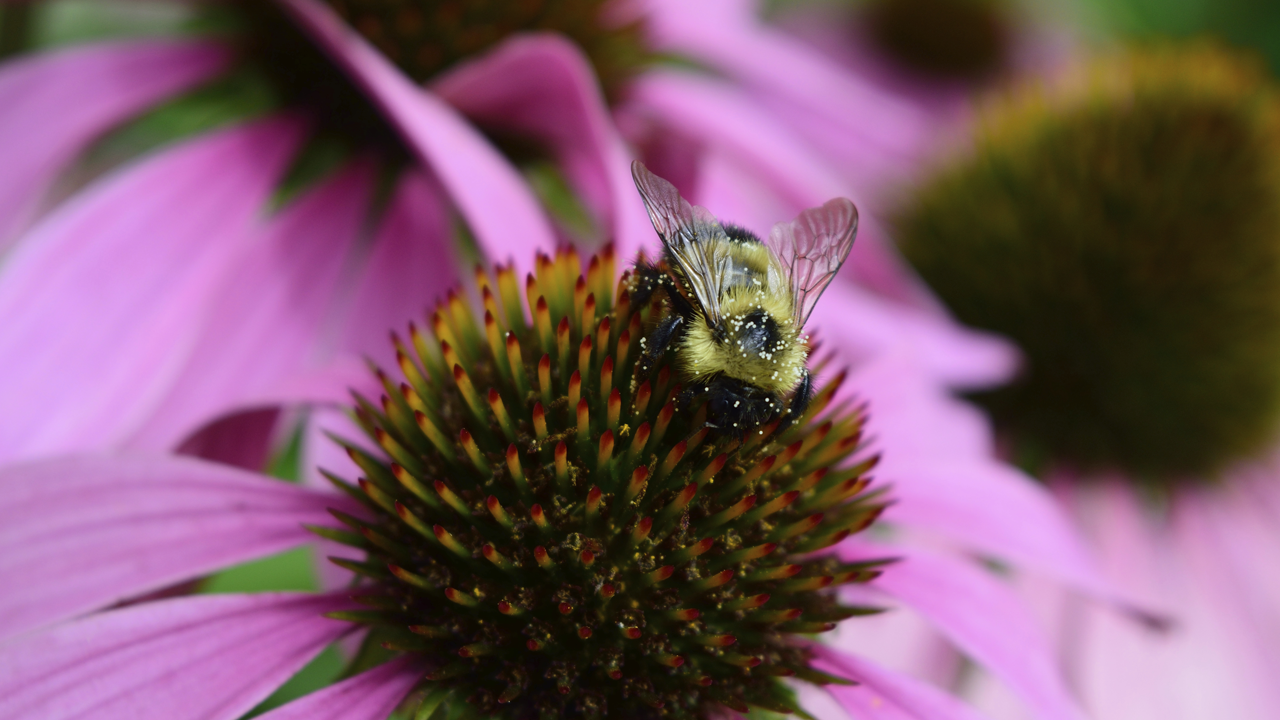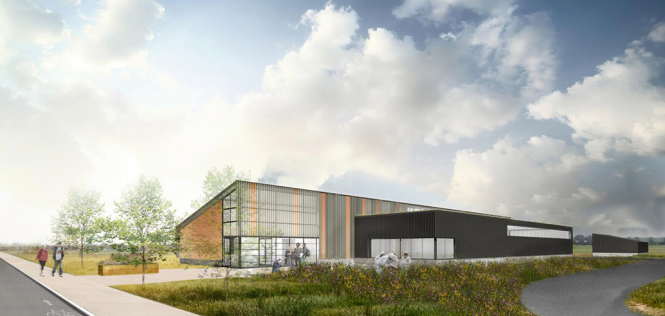
Researchers are buzzing with excitement over an upcoming University of Minnesota lab.
Construction crews will begin work this fall on the Bee and Pollinator Research Lab, which will provide the collaborative and centralized spaces needed to advance the U’s internationally recognized research and allow for stronger interdisciplinary and international collaborations on bees and other pollinators. The $6 million, 10,500 square foot lab, part of the College of Food, Agricultural and Natural Resource Sciences, is expected to open summer 2016 on the St. Paul campus.
The new facility will bring the Bee Lab’s research and outreach programs together, combining lab space, honey extraction, apiaries for research and teaching, offices, equipment space, and bee-friendly landscaping into one central facility that allows for the training of new scientists and conducting ongoing research. The building will replace the previous facilities, which spanned a number of outdated buildings and sheds across campus and included a honey house that was in poor condition.
“This new, state-of-the-art facility brings together all of the Bee Lab’s research and educational activities, allowing us to be more efficient and to have more space to coordinate and collaborate on studies,” said Marla Spivak, Ph.D., distinguished McKnight University professor of entomology. “The facility will be crucial as we continue to research the factors contributing to the decline of bee colonies and work to discover how to best promote bee health and protect the valuable role they play in our society.”
Why are bees so important? These insects play an important part in agriculture, nutrition and the economy. According to data from the U.S. Department of Agriculture, bee pollination is responsible for more than $15 billion in increased crop value each year, and one-third of a person’s diet directly or indirectly benefits from honey bee pollination, which supports commercial production of berries, fruits, vegetables and tree nuts, like almonds. Currently, bee populations are suffering from a collection of interacting threats, including parasitic mites, diseases, pesticides and lack of flowers, which can lead to malnutrition in bees.
Bee researchers at the U of M study the abundance, diversity and social behaviors of bees, as well as how best to breed and manage colonies. The new lab will host Spivak’s honey bee program, which covers a wide range of topics related to bees’ ability to survive and thrive, from improving conservation to reducing pesticide use. Spivak and her team, for example, are studying how propolis, a resin that honey bees collect from certain trees and use to seal cracks in their hives, can benefit human health. Early studies between Bee Lab researchers and collaborators at the U’s Medical School suggest propolis, which has antimicrobial and antiviral properties, is highly active against one type of HIV in human cell culture. Other research Spivak has led includes identifying and breeding “Minnesota Hygienic Bees” — queen bees that detect and remove damaging diseases and parasites from the hive, helping bees defend themselves naturally.
The lab will also support the research of Daniel Cariveau, Ph.D., who recently joined CFANS as an assistant professor of entomology to study how to increase habitat, such as flowers and nesting sites, to support native bees around the state. Cariveau will begin by partnering with the Minnesota Department of Natural Resources and other state agencies to survey native bees around the state.

An artist’s illustration of the upcoming U of M Bee and Pollinator Research Lab. Credit: Alliiance
A Hands-On Learning Center
In addition to the new research lab, the U will also help conduct outreach and education efforts through a new facility at the Minnesota Landscape Arboretum in Chaska, Minn. The $7 million Tashjian Bee and Pollinator Discovery Center, construction crews start building this month, will give visitors innovative, hands-on experiences to learn about the lives of bees and other native pollinators.
U researchers will partner with the arboretum on teaching children and adults about the agricultural and ecological importance of pollinators and how their efforts intersect with human lives, as well as how visitors can plant bee-friendly flowers around their homes to help support bee populations.
Visit the Bee Lab website to learn more about the upcoming research lab. For information on contributing to the fundraising effort to support the new facilities, contact Shana Zaiser at zais0003@umn.edu.